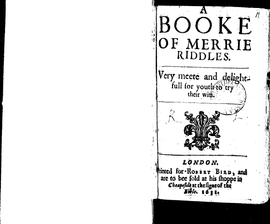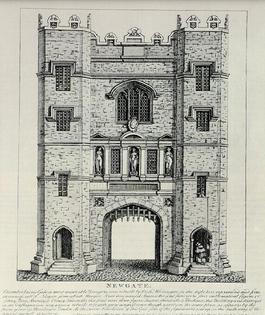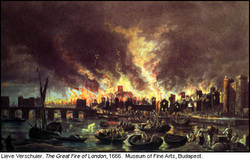 I've been joined here today (virtually!) by a long-time reader of mysteries, Danna, who blogs at the wonderful Cozy Mystery List Blog. I've been following Danna's blog for a while. As a reader it's an invaluable place to discover new-to-me mysteries. As a writer, I've gleaned some great insights from her readers about what they think works well and what doesn't in a mystery. So Danna has been gracious enough to share some of her thoughts here. Tell us a little about yourself--have you always been a big reader? I grew up in a military family. The longest time I lived in one location (four years) was when my father was stationed in Spain. Looking back, I guess I could say that the one "constant" (besides my family, of course!) were my books. They could travel with me and keep me company during the time it took to make new friends. I have my master's degree in education and have taught school in both middle and high schools. I thought for sure I would continue teaching school in Colorado, but I married a military man which meant going back to the nomadic life of my childhood. When did you start reading mysteries? I began reading mysteries when I started reading my sister's "hand-me-down" Nancy Drew and Hardy Boys mystery books. From there, I graduated to Edgar Allan Poe, Sir Arthur Conan Doyle, and "Victoria Holt-type" mystery books. (My grandmother's house was full of books, and her local library was a place she and I visited many times.) Is this your favorite genre? Obviously, with a site that has "Cozy Mystery" in its name, cozy mysteries are my favorite genre. However, I read police procedurals, true crime, and when I have time, non mystery themed books. (Non mystery author E. F. Benson is my all-time favorite author.) My husband's taste in books is much wider than mine, so he occasionally finds something he thinks I absolutely have got to read. ("The Hiding Place" by Corrie ten Boom is one of his recent "finds" - and I can't say enough good things about that book.) Why did you begin to blog about mysteries? Years ago I belonged to several online mystery reading groups. I made two very good mystery-reading friends in two of those groups. When I found that I needed a system for cataloging the books I read (buying the same books twice), I started making a list of all the mystery authors I read and liked and included authors who I didn't like - so I wouldn't end up buying their books ever again. When my friends found out about my systemized lists of authors and books, one of them asked if I would share it. I then began adding their favorite (and least favorite) authors to my list. From there, I started my site - with a lot of computer/technical help from my husband. I had been frustrated trying to expand my list of cozy mystery authors. At the time (2006) there weren't any internet sites that were devoted to cozy mysteries (at least not that I knew of). And then an unexpected thing happened: I started getting e-mail from people all over the world, asking for help in identifying authors, or for suggestions about what to read, etc. My husband saw that I spent quite a bit of time answering these letters, and suggested that I start a blog. He finally convinced me, and the response to my blog was an even bigger surprise to me!
19 Comments
 1631 STC /1476:06 Riddles, jests and other merriments always sold well in seventeenth-century England. Then, as now, people enjoyed a good laugh--being surrounded by plague, terrible sickness, fire, Puritans, etc may have had something to do with that! When I came across A Book of Merrie Riddles--claimed to be "very delightful for youth to try their wits"--I couldn't resist offering a few to YOU. Let's see what you make of these seventeenth-century jests. First, I'll give you few questions with solutions. Then, I'll give you a few without; see what you come up with. Question: I wound the heart and please the eye. Tell me what I am, by and by. Solution: Beauty. Question: When I did live, then was I dumb, and yield no harmony: But being dead, I do afford most pleasant melody. Solution: Any musical instrument made of wood. Easy, right? Of course there are a few a little more inscrutable today: Question: Who wears his end about his middle once in his time? (I would let you figure out this one, but it's pretty contextually situated.) Solution: A thief whose arms are tied with the halter, wherewith he shall be executed. Hmmm.... So here are a few more...what do you think are the solutions? Question 1: I do walk, yet I do not go. I do drink, yet no thirst lack; I do eat, yet do not feed; I do wake, yet no work make. What am I? And another: Question 2: I was not, I am not, I shall not be, yet I do walk as men do see. What am I? ********************************************************** Let me know: Are you as smart as a 17th century youth? I'll post the answers soon..... *********SPOILERS!!! Solutions ahead!!!***************
I figure that's sufficient space, if you're really concerned. Question 1: so, so, SO LAME. The solution is "Someone moving about in a dream." Question 2: so, so, so, SO, SO, SO LAME! (or fiendishly clever, you decide). The solution is "A person with the surname of 'Not'." As in Susie Not. NOT!!!  After Newgate burned down, then what? When I wrote the first draft of From the Charred Remains, I focused mainly on getting the story worked out--finding the heart and shape of my tale. I didn't stress too much over language, description, and dialogue on the first go-round--I figured I could elevate my prose later. As for historical details, I frequently had to make my best educated guess about what might have been true in those first weeks after the Great Fire of London (September 1666)...and move on. Now as I work through draft two, I'm doing the hard--I mean fun--part: Fixing and double-checking all the historical details. I've already mentioned two of my recent questions (How plausible was the stated death toll of the Great Fire of London?) and (How far could a horse travel in the seventeenth-century anyway?), but here are a few other things that I've pondered: Since my heroine is now a printer's apprentice (yes, unusually so!) I had to figure out a lot of specifics about the early booksellers and their trade. So I wondered, for example, how did a seventeenth-century printing press operate? As it turns out, the press operated in a remarkably gendered way--parts of the machine were referred to as "female blocks," which had to connect with "male blocks." The interconnected parts were supposed to work together harmoniously, but on occasion--usually when the female "leaked"--the whole press might stop working. (Naturally, the female part was to blame!) And another question: Since three of the largest prisons--Newgate, Fleet, and Bridewell--were all destroyed in the Great Fire, where were criminals held? I had to make my best guess on this one. There were other prisons of course: Gatehouse prison in Westminster, the White Lion prison, the Tower, and my favorite, the Clink in Southwark. But I decided to invent my own makeshift jail--after all, in those chaotic days after the Great Fire, order had to be regained quickly, and it stands to reason that royal and civil authorities might have wanted lawless behavior contained as quickly as possible. I couldn't find evidence to the contrary, so an old chandler's shop became a temporary jail. And were criminals still being hanged at the Tyburn tree immediately after the Fire? Executions resumed quickly after the Fire, conducted as they had been since the twelfth century, in the village of Tyburn (now Marble Arch in London). Prisoners were progressed by cart, from jail to the "hanging" tree, parading through the streets--often praying, preaching, repenting or depending on their personality, even swapping jokes with the spectators. Usually they stopped at a tavern for one last drink along the way, before being forced to do the "Tyburn jig," as Londoners cheerfully called execution by hanging. Of course, I also looked up countless other details...Who used acrostics and anagrams to convey messages? What secrets might be conveyed in a family emblem? And most significantly of all: What happened when the first pineapple arrived in London? Ah-h-h, but I can't tell you about these answers....I'd be giving too much away about Book 2!!! I don't really have a question for you to answer, so I'll just end with a maniacal laugh... MWAH HA HA HA HA....!!!  The backdrop of my second novel, From the Charred Remains, begins where The Murder at Rosamund's Gate left off...at one of the most traumatic moments in London's history: The Great Fire of 1666. Yet as I researched the extent of the devastation, looking at a wide range of sources, I became increasingly perplexed by how few people were alleged to have perished during the conflagration. Over and over, I'd see repeated the same impossibly low numbers--nine, ten, a dozen people. How could that be? You see, the Fire--which started in early September 1666 when a baker failed to bank his coals properly--raged out of control for several days before the winds mercifully shifted. In that time, the Fire destroyed thousands and thousands of homes and businesses, and a hundred thousand people were left homeless. Just imagine--as I've tried to do--the mayhem, the panic, the crush of humanity. Could the elderly, the infirm, the drunk have fled so easily? And what about the inmates of Newgate prison? It's unlikely the wardens of that dreadful place would have thought through a systematic evacuation plan. And yet, historians have long pointed out (very reasonably, I might add) that the death toll could not have been very high. Someone would have noticed. Surely, someone would have written about death on a massive scale. But, such written accounts don't exist. Contemporaries (such as Pepys or other chroniclers from this time period) only noted a handful of deaths. Two elderly women found huddled by St. Paul's. A young serving girl afraid to jump from the third story of a building in flames. Such tales are scattered about, but they are notable in their rarity. More significantly, the Bills of Mortality, which carefully documented all deaths from the plague and other misfortunes in the 1660s, did not describe any great numbers after the Fire. Cover up? hmmmm.... As it turns out, I'm not the only one who has pondered this very question. Neil Hanson, author of The Dreadful Judgment, has made a compelling argument that thousands may have perished in this blaze--in direct opposition to the commonly accepted view. Hanson raised two important questions: Why were these deaths not recorded, and what happened to their bodies? (You can read his fascinating address to the Museum of London here). Sadly, Hanson's conclusion is deeply troubling but may well be accurate--the bodies of the missing had simply disappeared into the flame. Everyone had missing neighbors who never returned....numbering in the thousands. So, this is one of those odd cases where the silence of evidence could be evidence in itself. But what do you think? |
Susanna CalkinsHistorian. Mystery writer. Researcher. Teacher. Occasional blogger. Categories
All
Archives
May 2023
|
 RSS Feed
RSS Feed